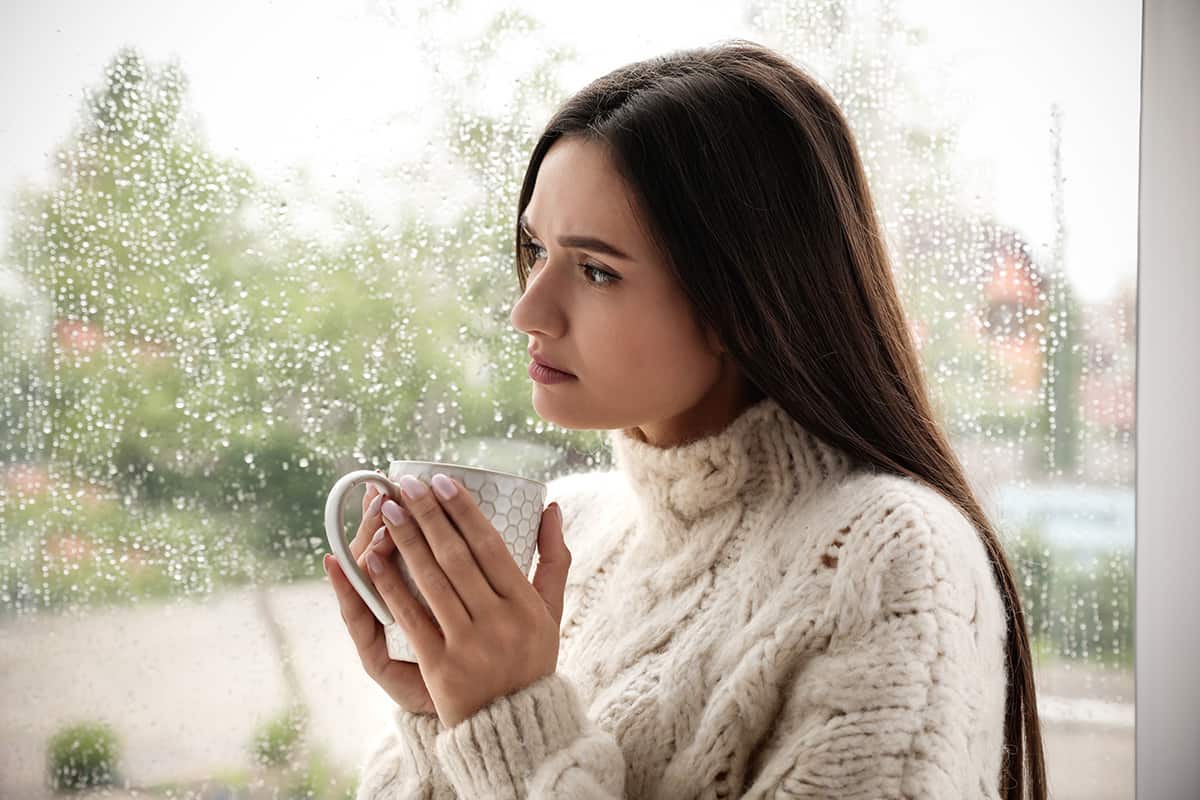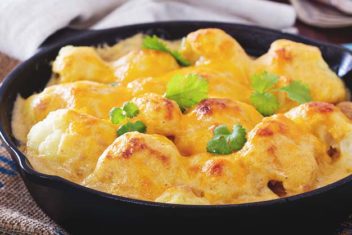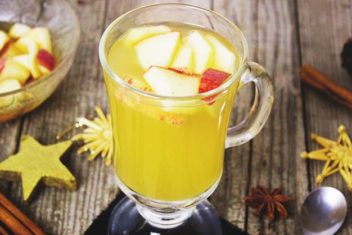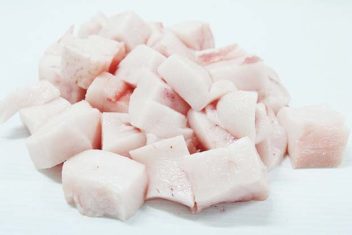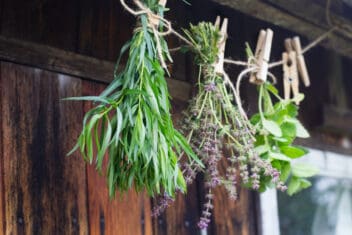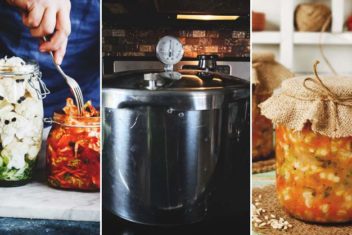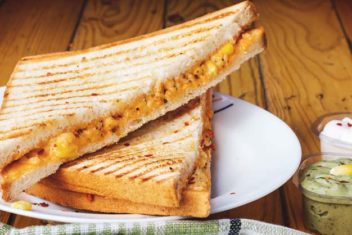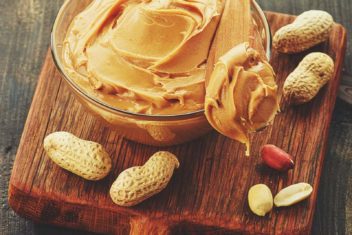Just about everyone I talk to these days is contending with some type of anxiety. We’re living in unprecedented times, and that’s causing veritable maelstroms of anxious thoughts and difficulty sleeping. Herbs for anxiety, insomnia, depression, and restlessness are more popular than ever and are easily accessible to just about everyone.
Herbs that are used to calm anxiety are often referred to as “anxiolytic“.
They have mild tranquilizing effects, and in addition to alleviating panic, they often ease pain and insomnia as well.
You might even have some of them in your cupboard or garden right now. Let’s take a look at them so you can relax and get some proper rest.
The Best Herbs for Anxiety and Insomnia
In fact, herbs that are used to promote sleep, known as “hypnotics”, can often calm anxiety in turn. That’s why so many of these herbs can almost be used interchangeably.
These herbs are also known as nervines because they act on the nervous system.
Not sure how to take these herbal remedies? Check out our guide on when to use decoctions, infusions, and tinctures.
Below are some of the most common herbs that can be taken to soothe anxiety and promote restful sleep.
1. German Chamomile (Matricaria recutita)
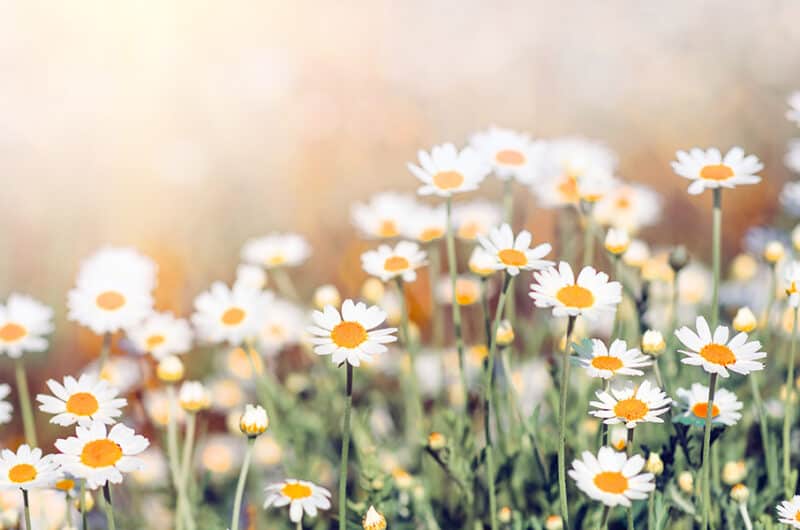
Were you ever given a cup of chamomile tea to calm you before bed when you were a child? I bet it worked. Chamomile has very gentle sedative properties that are wonderful for calming anxiety and promoting restful sleep.
Since it’s so gentle, it can be used daily. This makes it ideal for offering support during long periods of stress. It’s gentle enough to give to children and doesn’t have any lingering effects. You can take it in tea (infusion) or tincture form and sweeten it to taste if desired.
Note: People who are allergic to ragweed may also have an allergic reaction to chamomile. It shouldn’t be combined with some prescription medications.
2. Lemon Balm (Melissa officinalis)
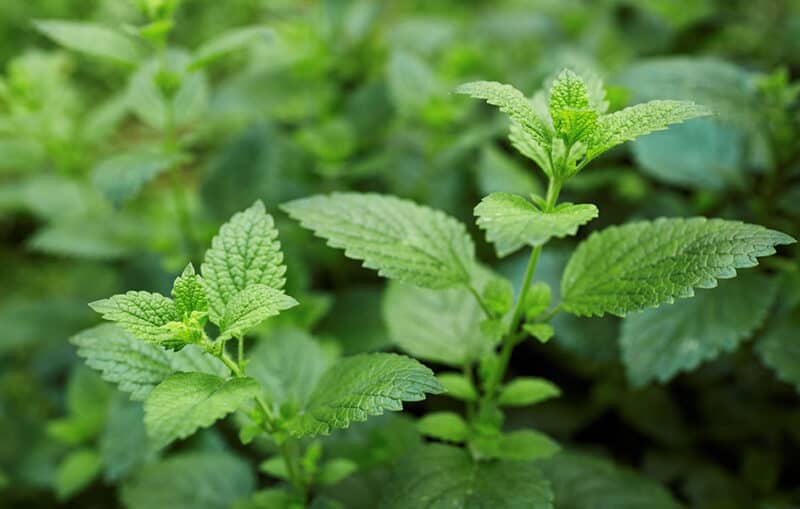
Fragrant and lemony, this happy little member of the mint (Lamiaceae) family soothes frayed nerves amazingly well. I’ve given a strong cup of lemon balm tea to people in the throes of panic attacks, and it has always done them a world of good.
Among the various herbs for anxiety, lemon balm has a centuries-old reputation for “gladdening the heart.” It has recognized antidepressant and anxiolytic properties and is great for untying the belly knots that come with extreme emotion, stress, shock, and trauma.
When taken about an hour before bed, like tea or tincture, it can quiet restless thoughts so you can have an easier time falling asleep.
3. Lavender (Lavandula angustifolia, formerly L. officinalis)
Have you ever noticed that lavender is pretty much ubiquitous in “relaxation” products? Whether it’s in bath soak, candle, spray, or sachet form, this herb is promoted worldwide as a calming agent for frayed nerves and insomnia.
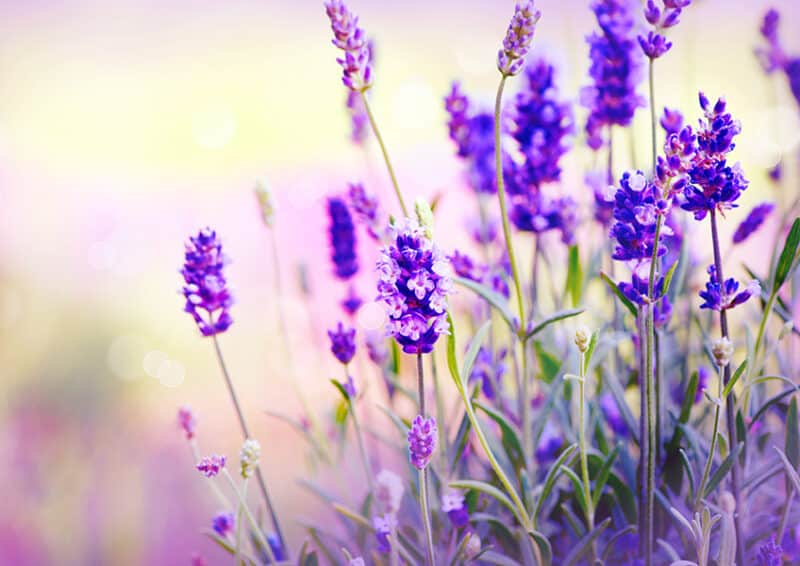
No list of herbs for anxiety and insomnia would be complete without this friendly purple flower. That said, unlike most of the others here – which are taken in tea or tincture form – lavender does its best work as aromatherapy.
Add some lavender essential oil to a candlelit bath before bed, and sprinkle a few drops on your pillow. The scent is known to calm troublesome thoughts and can help promote deep, restful sleep.
*Note: if, like me, you can’t stand the scent of lavender, try rose instead.
4. Catnip (Nepeta cataria)
Although this member of the mint family drives our feline friends wild, it has a sedative effect on humans. Like most other mints, it has an almost instant effect on anxiety and panic and has been used for hundreds of years as a sedative tea.
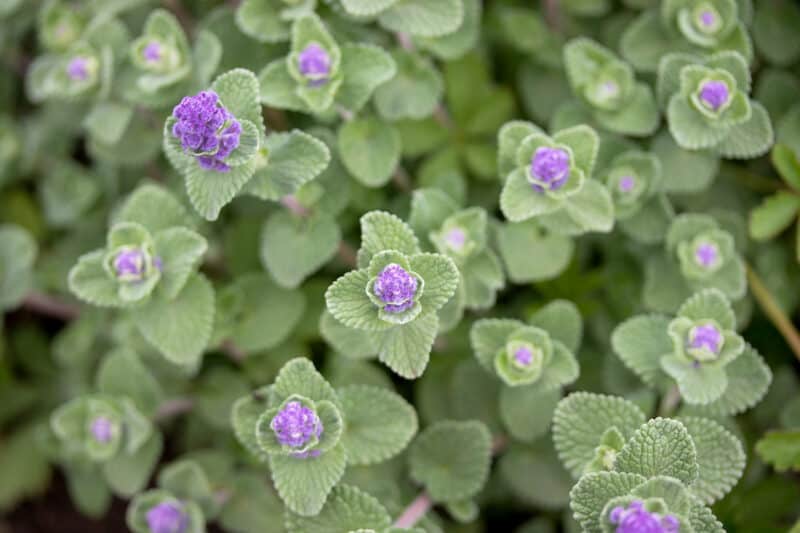
In fact, that’s actually how it became naturalized in North America: European settlers brought it over and planted it specifically for its calming effects.
This can be used safely for anxiety and insomnia and is safe for children over the age of four.
Catnip can, however, act as an emmenagogue, meaning that it can cause uterine cramping. As a result, it shouldn’t be taken by women who are pregnant or trying to conceive.
5. Milky Oats (Avena sativa)
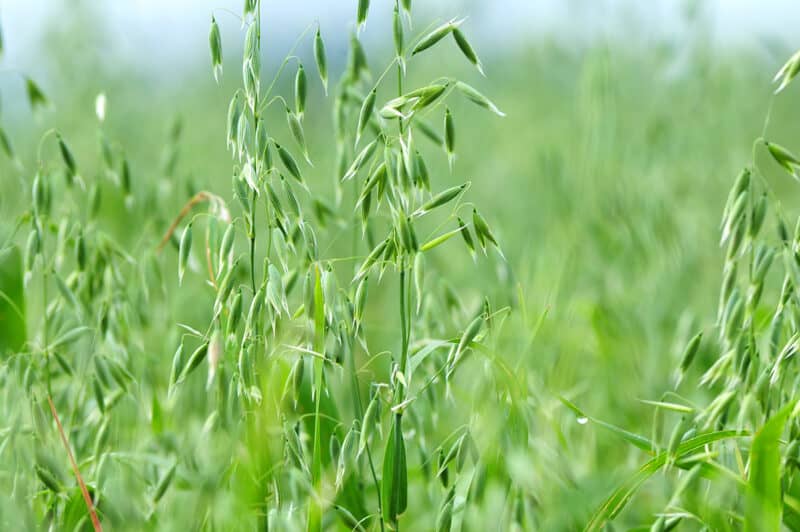
If you’re dealing with stress-induced anxiety on a daily basis, you might want to consider milky oats. Unlike some other herbs that can only be used short term, milky oats can be used on a daily basis as a nervine food.
There are different kinds of anxiety, and milky oat tincture is great for when you feel shattered and depleted from extended periods of stress.
They can help replenish you when you’re suffering from adrenal fatigue, and can help increase emotional and physical strength over time.
6. Passionflower (Passiflora incarnata)
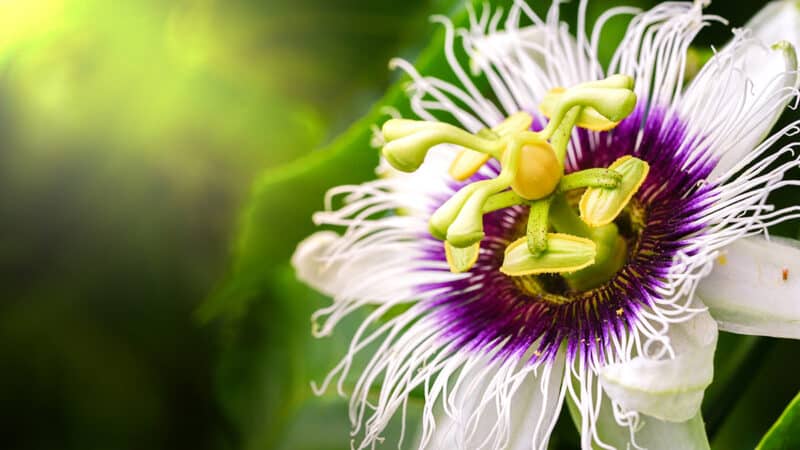
This is my all-time favorite anxiolytic and hypnotic. Of all the herbs for anxiety, it’s the one I have worked with the most, and I love it.
Not only can it alleviate anxiety, panic, and insomnia, it also has mild analgesic effects. I’ve used this to treat my own stress-induced headaches, as well as menstrual cramps and muscle aches.
Passionflower is one of the best herbs for the type of anxiety that causes disturbing thoughts you can’t get rid of. These are the ones that keep cycling through your mind and won’t abate, no matter how hard you try to distract yourself.
You can take passionflower as a tea (one tsp in a cup of hot water) or tincture (one–three ml, up to three times a day) to calm anxiety. This herb is also great if you have the kind of insomnia that manifests as waking up repeatedly during the night.
For adults who struggle at nighttime, aim for four ml for the sake of efficacy.
*Note: This herb is safe to use in pregnancy, and is also safe for children. Try soaking a washcloth in passionflower tea and freezing it for teething little ones to chew on.
7. Valerian (Valeriana officinalis)
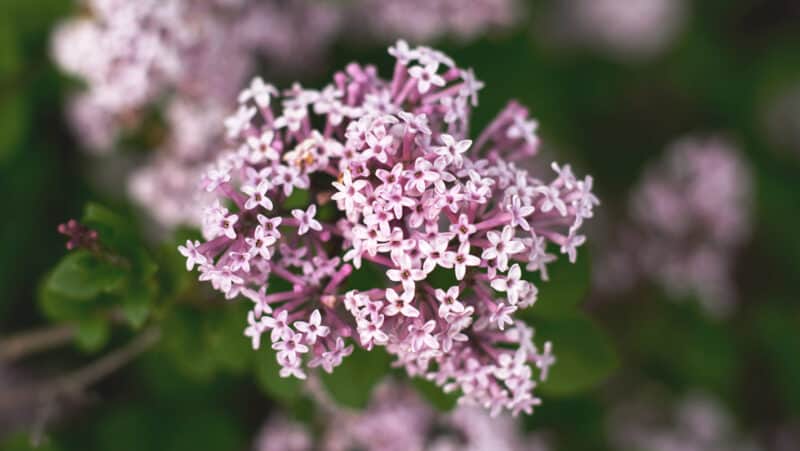
You’ve probably heard of valerian’s efficacy at treating insomnia and stress, and that’s understandable. It’s been among the more popular herbs for anxiety and sleep disorders for centuries.
Valerian is great for the kind of stress- or trauma-based anxiety that can cause stomach issues such as IBS. It can also calm the muscle armoring in the shoulders and back from PTSD and shock. It’s effective, has few side effects, and can be found at pretty much any health food store or pharmacy.
Note that in a small percent of the population, valerian can actually have stimulating effects rather than soporific ones. As such, you might want to try it out when you’re not desperate for a solid night’s sleep, just in case.
8. California Poppy (Eschscholzia californica)
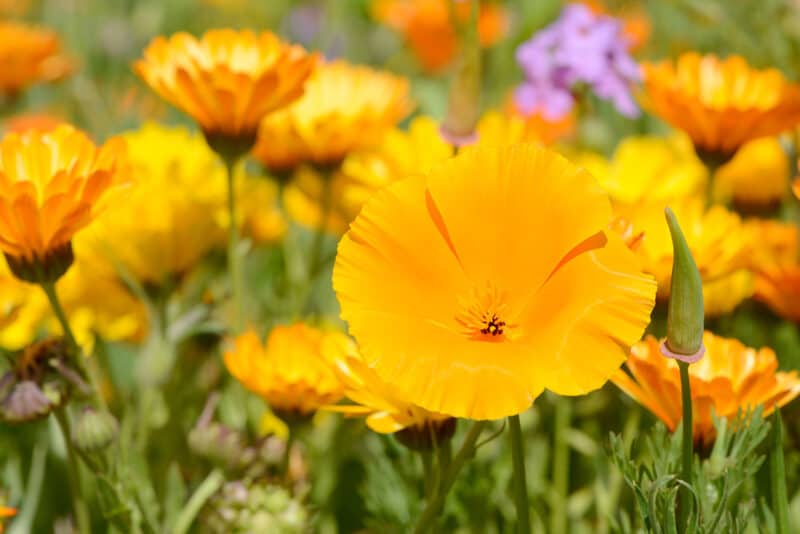
Unlike opium poppy (Papaver somniferum), California poppy isn’t narcotic, nor does it have any addictive effects, so don’t worry about using it. In fact, this sweet little anxiolytic and hypnotic is gentle enough for children, especially those who suffer from night terrors.
Note that this tea (or tincture) tastes quite awful. You might want to mix it with honey or maple syrup, especially if giving it to children.
California poppy is wonderful for soothing anxiety attacks, and for treating the kind of insomnia that wakes them several times during the night. Try a cup of tea, or dropper full of tincture (about 40 drops) in water an hour before bedtime for a night of deep, dreamless sleep.
9. Linden (Tiliaspp.)
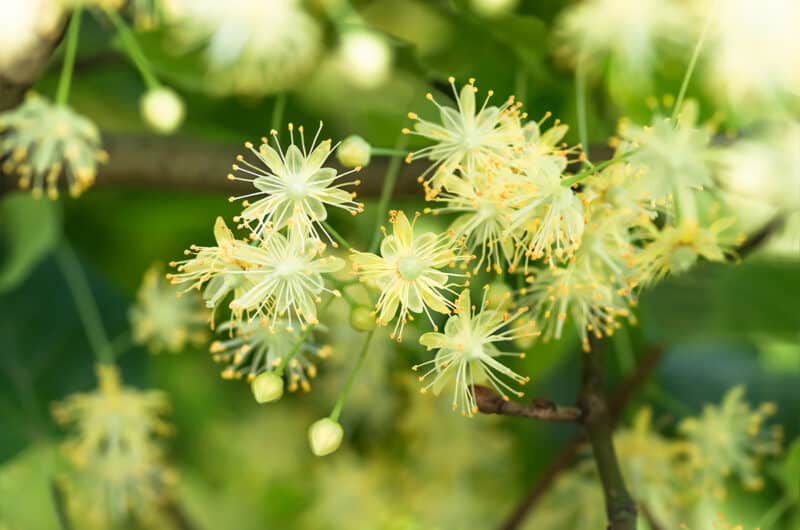
My Ukrainian/Russian grandmother would make me linden tea with honey whenever I had difficulty sleeping. She hated chamomile (as do I), so she chose this herb for its gentle sedative actions instead.
Linden is calming and soothing and has antispasmodic as well as sedative and anxiolytic effects. This makes it ideal for treating muscle cramps and stiffness, such as those in the neck and shoulders caused by tensing against stress.
This herb can only be used short-term, so only take it if you’re experiencing a bout of anxiety and/or insomnia, not for chronic conditions. Women who are pregnant or nursing should avoid linden and choose something in the mint (Lamiaceae) family instead. Do not give linden to children under the age of 12.
10. Ghost Pipe (Monotropa uniflora)
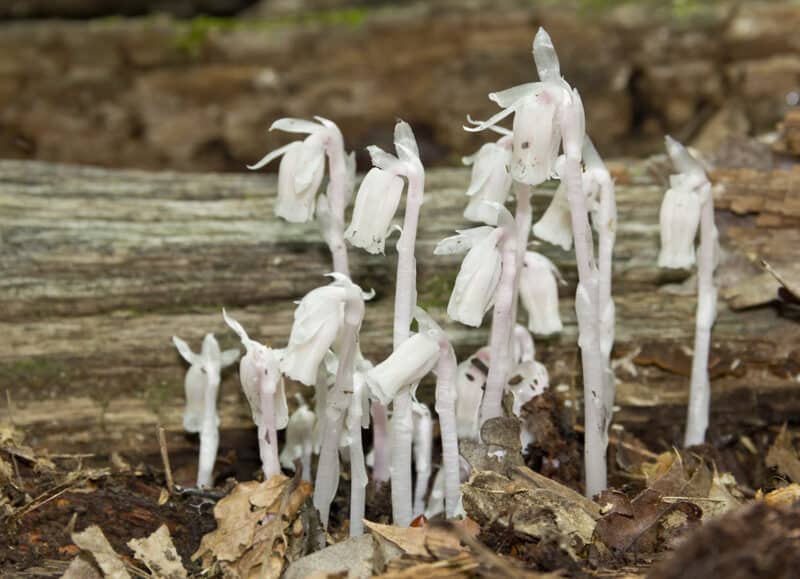
This one is little-known and rarely used, but is among the more effective herbs for anxiety and insomnia caused by physical pain.
This is because its effects are mostly antinociceptive, which means that it helps to block or reduce pain sensitivity. Sort of like helping a person disassociate from pain so it doesn’t really affect them much.
This makes it effective for people who are agitated or insomniac because of chronic pain conditions. For example, those who can’t get comfortable in bed because of arthritis or fibromyalgia.
When it comes to alleviating anxiety, this plant helps us to feel more grounded. It’s great for panic that’s caused by emotional or sensory overload, as well as for trauma-based flashbacks.
If someone is caught in anxiety-causing thoughts that keep spinning, ‘Ghost Pipe’ can bring them back to the present moment and calm the overwhelming fight-or-flight response.
11. Rhodiola (Rhodiola rosea)
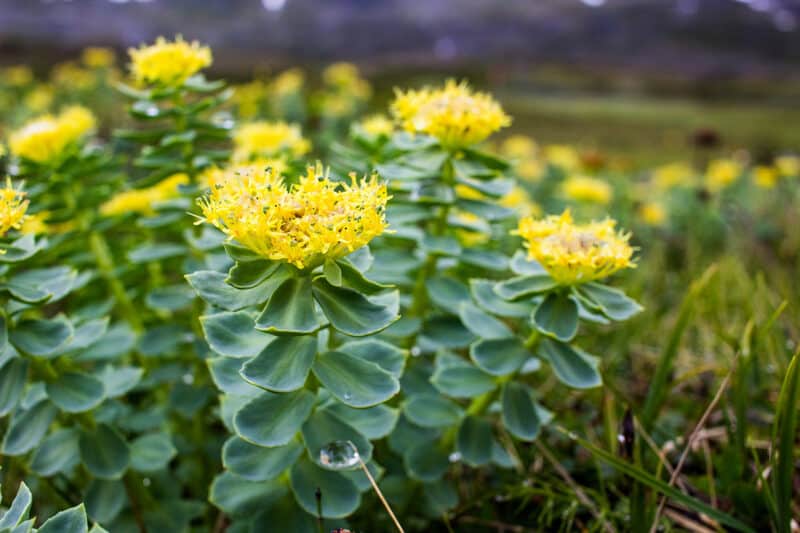
Rhodiola makes a fantastic groundcover as well as a plant that is showing promise for treating anxiety.
An extract of this plant can ease tension, confusion and reduce anger. It can also help those suffering with mild or moderate depression.
Try to Treat the Cause, Not the Symptoms
As with all health issues, it’s important to touch upon what’s causing them, rather than just treating symptoms. Body/mind/spirit balance is vital for long-term health.
It’s a good idea to take note of lifestyle and dietary choices to see if there are factors contributing to anxiety and insomnia.
For example, anxiety can often be caused by food sensitivities or intolerances. Those who are sensitive to nightshade vegetables (tomatoes, peppers, eggplant, etc.) can experience panic attacks after eating them. This reaction can include irritability, heart palpitations, and a low-grade sense of overall anxiety.
Similarly, insomnia can be caused by adverse reactions to coffee, alcohol, chocolate, and various other stimulating foods.
If you feel that there may be dietary triggers for your anxiety and insomnia, try an anti-inflammatory elimination diet for a month, preferably under the guidance of a nutritionist or naturopathic doctor. Then add one food back every few days to see how you react to it.
Make sure you eat a well-balanced diet that contains plenty of healthy fats, such as avocados and coconut oil.
Also, ask yourself if you’re getting enough exercise. Although these herbs for anxiety and insomnia can certainly help alleviate these conditions, getting enough cardio exercise can also work wonders.
Practice Good Sleep Hygiene
In addition to potential dietary changes, be sure to adjust your sleep habits to help alleviate insomnia. Only use your bedroom/sleep area for sleeping and intimacy, rather than hanging out there to watch movies or play games. This will help your mind associate bed with sleep.
Try to stick to a regular sleeping schedule to re-align your own internal clock.
Also, avoid using any electronics within an hour of going to bed. Many studies show that looking at screens such as phones and tablets can disrupt sleep patterns. Turn them off, or leave them in another room entirely.
You might also like to establish a nighttime routine for yourself. Maybe some gentle yoga followed by a bath. Then journal or read (while sipping a cup of herbal tea!) until you’re ready for bed.
Research Before Taking Anything
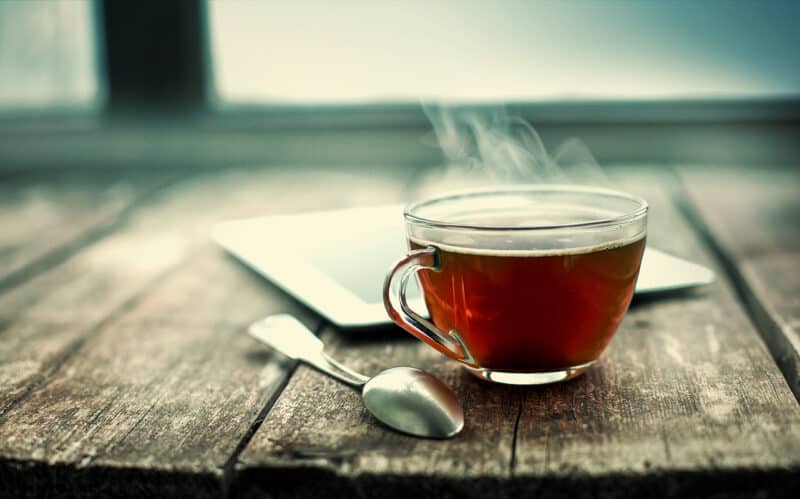
Please remember to always do proper research about herbs before taking them medicinally. Different people react to plants in different ways.
You are responsible for your own health and wellbeing. As such, be sure to consult your healthcare provider or a professional herbalist before taking any of these remedies. They can help you determine whether there are any potential contraindications to watch out for. They can also help you with any questions about dosages.
